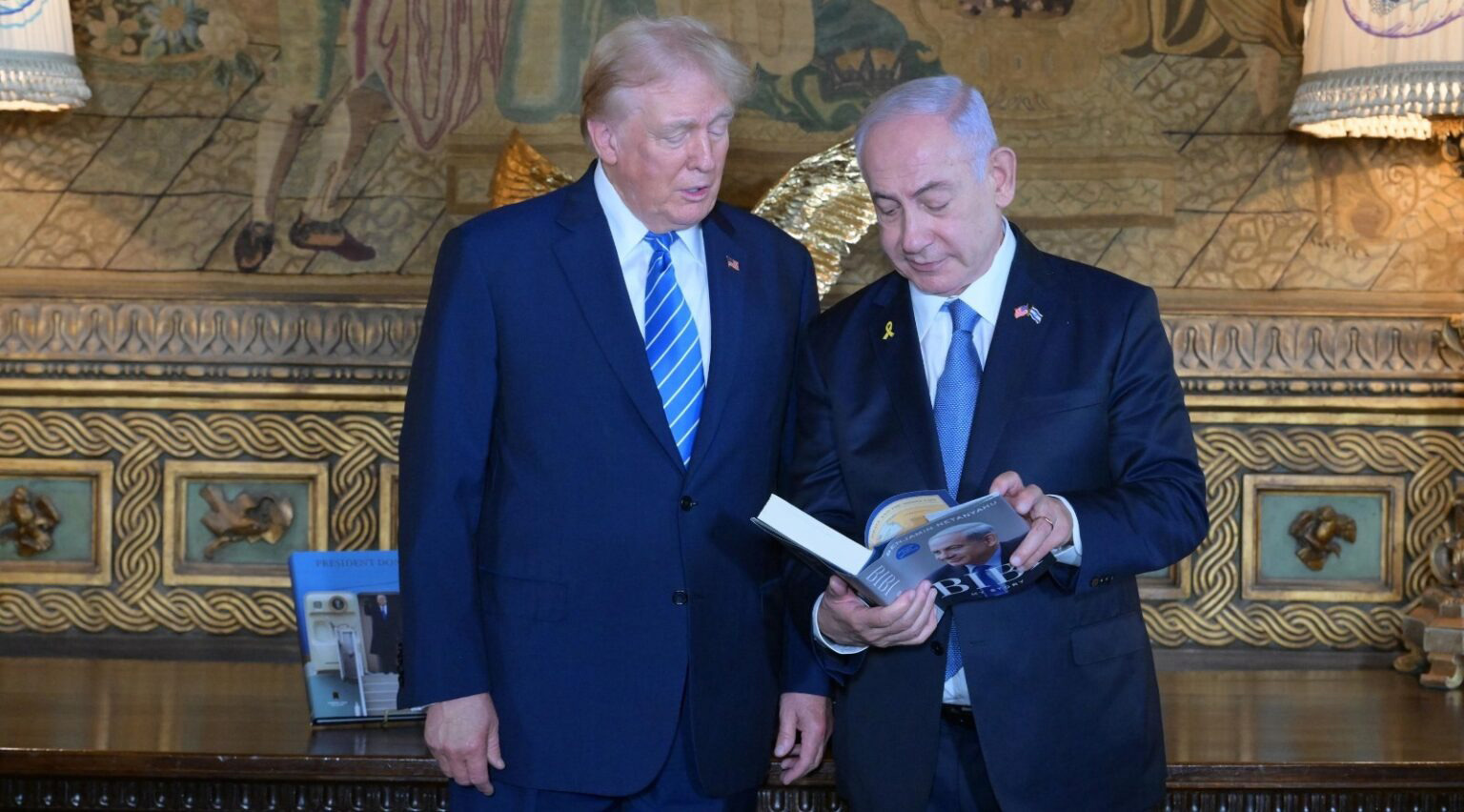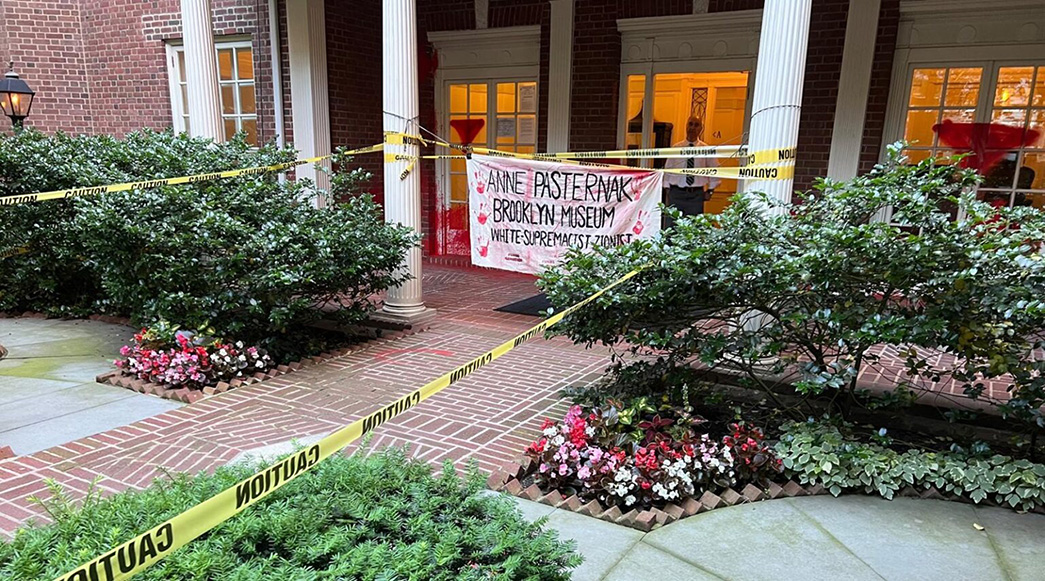(JTA) — Advertisers have been dropping off the social network X this week after its owner, Elon Musk, called an antisemitic post “the actual truth.”
It was the exact pressure tactic that the Anti-Defamation League had recommended almost exactly a year earlier to fight hate on the platform, then known as Twitter. And given the Jewish civil rights group’s CEO’s response to Musk’s post endorsing the antisemitic “Great Replacement” conspiracy theory, one might have expected it to follow suit.
“It is indisputably dangerous to use one’s influence to validate and promote antisemitic theories,” ADL CEO Jonathan Greenblatt wrote on the platform.
Yet even as companies including IBM, Apple and Disney are pulling their ad dollars in protest, the ADL is continuing to buy ads — and Greenblatt has shifted to praising Musk, this time for what he says is a meaningful effort to fight antisemitism.
Musk had written another post, saying that two phrases common to pro-Palestinian protests — “decolonization,” and “from the river to the sea” — “necessarily imply genocide.” He added that users would be suspended if they posted “clear calls for extreme violence.”
“This is an important and welcome move by @elonmusk,” Greenblatt responded. “I appreciate this leadership in fighting hate.”
Musk has been sparring publicly with the ADL for months, at one point blaming it for rising antisemitism and threatening to sue it for billions of dollars. Now, the latest whirlwind chapter in that saga — Greenblatt’s quick shift from condemning to praising the billionaire social media mogul — has created a whiplash moment for the Jewish world.
On Monday, the State Department’s antisemitism envoy suggested that she opposed Greenblatt’s stance, while a member of one of the ADL’s advisory boards called the about-face “embarrassing.”
“The damage was done,” Ambassador Deborah Lipstadt remarked about Musk’s first post during a Monday briefing with Jewish media. “The endorsement of the Great Replacement theory was very harmful.”
Lipstadt added that she disapproved of what she saw as any attempt to “mitigate” Musk’s earlier post, without criticizing Greenblatt directly. “You can try to mitigate, but once you open the pillow, it’s like chasing the feathers,” she said.
Greenblatt told the Jewish Telegraphic Agency he didn’t regret his praise for Musk. Praising people when they take what the ADL sees as the right steps, he said, is part of his job fighting antisemitism. Musk’s post and his own praise of it, Greenblatt told JTA, came following a private conversation between the two men in which Musk previewed his vow to suspend users who call for violence.
“I will call out Elon Musk and X, like every other platform, when they get it wrong. And I will credit Elon Musk and X and every other platform when they get it right,” Greenblatt said Monday. “One doesn’t negate the other. It was not that, ‘this happened, therefore that wasn’t bad,’ or ‘that was bad, therefore we can’t see the value in this.’ Quite the contrary.”
During their conversation, Greenblatt said, he did not press Musk for an apology for the post the billionaire wrote on Wednesday, which Greenblatt had called “indisputably dangerous.”
Musk was replying to a user who wrote, “Jewish communities have been pushing the exact kind of dialectical hatred against whites that they claim to want people to stop using against them. I’m deeply disinterested in giving the tiniest ‘…’ now about western Jewish populations coming to the disturbing realization that those hordes of minorities [they] support flooding their country don’t exactly like them too much.”
The post was an endorsement of the Great Replacement theory, which posits that Jews are orchestrating the replacement of white populations in Western countries via the mass immigration of people of color. It was the theory cited by the attacker in the 2018 Pittsburgh synagogue shooting.
Musk responded, “You have said the actual truth.”
Greenblatt joined a loud chorus in condemning that post. Other Jewish groups, including the American Jewish Committee, harshly condemned it. Later in the same thread, Musk went after the ADL itself, saying the group “push[es] de facto anti-white racism.”
Greenblatt acknowledged the attacks on his group. “I don’t take any of that personally,” he said. Despite Musk’s public attitude about the ADL, Greenblatt called their meeting “extremely promising.”
Greenblatt noted that he believed Musk “still has work to do. He is not, if you will, in the clear.”
But, he added, “We saw a change in what he said on Friday, and that was noteworthy.” He said the ADL was buying ads on his platform, and in response to major firms suspending their ad spending, said companies “need to make their own decisions about where they want their brands to be placed.”
He said, “I hope that the other social media companies follow X’s leadership on this.”
His handling of Musk is not sitting well with some supporters of the ADL. Peter Fox, a member of the group’s NextGen Advisory Board in New York, wrote in the Forward that Greenblatt’s praise of Musk was “baffling and frankly embarrassing.” He added, “Aligning with someone like Musk, who repeatedly dabbles in conspiracy theories and white nationalist rhetoric, is a misstep that undermines the ADL’s credibility and core principles.”
Following Musk’s endorsement of the “Great Replacement” theory, more than 100 Jewish activists called out Musk for “spreading the kind of antisemitism that leads to massacres.”
Michelle Goldberg, a Jewish columnist for the New York Times, noted that Israel’s Diaspora minister, Amichai Chikli, also thanked Musk for denouncing the pro-Palestinian language. “It’s hard to figure out who is behaving more cynically, Musk or the Jewish leaders who are koshering him,” she wrote in a column on Monday.
Greenblatt acknowledged the criticism.
“At the end of the day, I understand that everyone might not agree with what I did,” he said. But he told JTA that he wasn’t concerned that his positions on Musk would harm the ADL’s reputation.
“The ADL has been around for 110 years. We don’t play for any particular team,” he said. “Our job is to protect the Jewish people. I don’t make the decisions I do based on how do I think this affects our, quote, ‘reputation.’ I do it based on, am I able to keep our community safe?”





